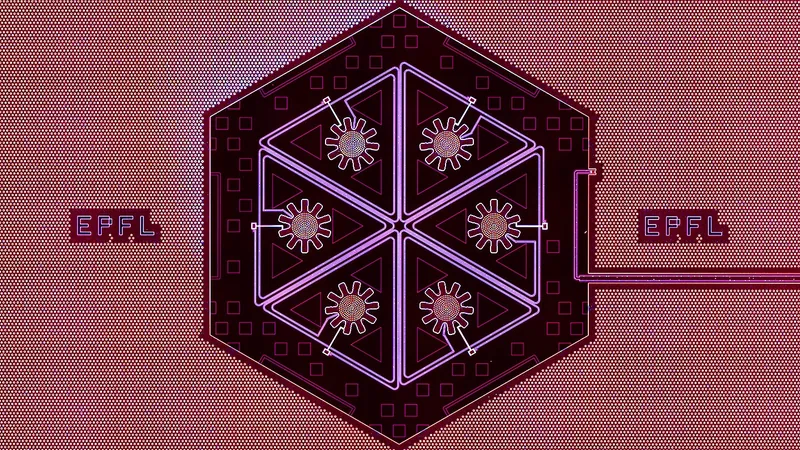
Alarming Link Between Pregnancy Hypertension and Neurological Disorders Revealed!
2024-12-23
Author: Rajesh
Recent research has unveiled a troubling connection between hypertensive disorders during pregnancy—specifically gestational hypertension, preeclampsia, and eclampsia—and an elevated risk of developing neurologic conditions years after childbirth. This compelling data, derived from Swedish registry studies, indicates that women affected by these complications face significantly higher rates of new-onset illnesses, including epilepsy and migraine.
The study, led by Dr. Therese Friis from Uppsala University and published in JAMA Neurology, found that the risk of neurologic disorders was notably pronounced in women who experienced these pregnancy complications compared to those who had normal blood pressure throughout their pregnancies. The adjusted hazard ratios (HRs) highlight the gravity of the situation:
Gestational Hypertension: HR 1.27 (95% CI 1.12-1.45) Preeclampsia: HR 1.32 (95% CI 1.22-1.42) Eclampsia: HR 1.70 (95% CI 1.16-2.50) Among these, eclampsia stood out with a staggering fivefold increased risk of new-onset epilepsy (HR 5.31, 95% CI 2.85-9.89). Furthermore, women who had gestational hypertension showed a significant rise in the likelihood of migraines post-pregnancy (HR 1.39, 95% CI 1.19-1.63), with preeclampsia also being correlated to increased risks for headaches and epilepsy.
In the United States, data from the CDC estimates that roughly one in seven hospital deliveries are complicated by hypertension. This prompts urgent calls for follow-up care focused not only on cardiovascular health—known to be at risk in this demographic—but also on the monitoring of any emerging neurological symptoms. "These visits are crucial, as our findings suggest that women with a history of hypertensive disorders are particularly susceptible to neurological complications," the researchers emphasized.
The exact mechanisms linking eclampsia to future neurological disorders, including epilepsy, remain unclear. However, previous smaller studies have indicated that eclampsia may serve as a potential risk factor for seizure disorders, further underlining the need for detailed research in this area.
Interestingly, Dr. Friis and the team may be the pioneers in establishing connections between gestational hypertension or preeclampsia and migraines, suggesting a possible shared vascular component contributing to both conditions. They assert, "The association hints at a deeper relationship due to the vascular implications of preeclampsia that could extend into long-term health issues."
The study examined data from 648,385 first-time mothers in Sweden between 2005 and 2018, with follow-up beginning 42 days postpartum and continuing for an average of 7.7 years. The findings revealed that approximately 1% of women with gestational hypertension or preeclampsia experienced new-onset neurologic disorders four years post-delivery—a figure that rose to 2% in those impacted by eclampsia. As time progressed, the incidence rates continued to climb by nearly 2% every four years.
While the study demonstrated that hypertensive disorders of pregnancy are not linked to increased risks of sleep disorders or mental fatigue, the team noted this could be due to insufficient sample sizes in those categories.
This groundbreaking research emphasizes the critical need for healthcare providers to screen for neurological disorders in women who have experienced hypertensive disorders during pregnancy, underlining that the impacts of such complications may linger long after the baby is born. As the medical community digests these findings, expect further inquiries into the long-term health of mothers and the profound effects of pregnancy-related conditions on their overall well-being.
Stay tuned as we follow this evolving story! The implications are vital—not just for maternal health, but for the future of neurological care in women post-pregnancy!



 Brasil (PT)
Brasil (PT)
 Canada (EN)
Canada (EN)
 Chile (ES)
Chile (ES)
 España (ES)
España (ES)
 France (FR)
France (FR)
 Hong Kong (EN)
Hong Kong (EN)
 Italia (IT)
Italia (IT)
 日本 (JA)
日本 (JA)
 Magyarország (HU)
Magyarország (HU)
 Norge (NO)
Norge (NO)
 Polska (PL)
Polska (PL)
 Schweiz (DE)
Schweiz (DE)
 Singapore (EN)
Singapore (EN)
 Sverige (SV)
Sverige (SV)
 Suomi (FI)
Suomi (FI)
 Türkiye (TR)
Türkiye (TR)